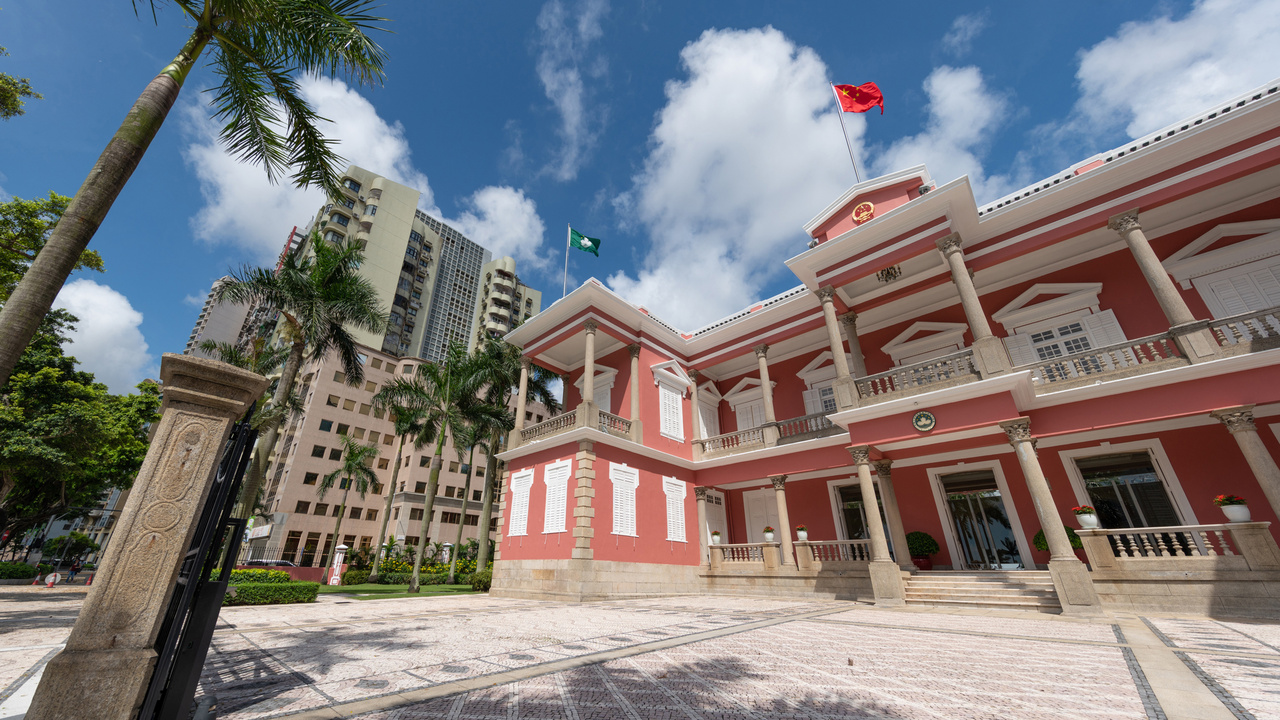
The Policy Address for the Fiscal Year 2025 proposes that, taking into account Macao’s social and economic development situation, and adhering to the principle of prudent financial management, a number of tax incentives and social welfare measures will either be continued, updated or added this year. Such measures include: optimising the Wealth Partaking Scheme; increasing pensions, the old-age allowance, the ordinary and special disability gratuity, the marriage allowance, the birth allowance, and the healthcare vouchers; and a newly-added childcare allowance.
After listening to opinions from all sectors of society, the Government has optimised the Wealth Partaking Scheme in a timely manner. Any savings will be used to improve people's livelihoods, and to promote community economic development. Each eligible permanent resident will receive 10,000 patacas, and each non-permanent resident will receive 6,000 patacas.
For disadvantaged families, the Government will continue to disburse the equivalent of 13 months of financial assistance per year. The amount of ordinary disability gratuity is increased to 10,000 patacas per year, and the amount of special disability gratuity is increased to 20,000 patacas per year. Disability pensions will be raised to 3,900 patacas per month, and unemployment allowance and sickness allowance will also be raised.
The Government will continue to: disburse carer’s allowance; subsidise people with disabilities for purchase of assistive equipment and special household devices; implement a "priority admission system for children from disadvantaged families"; subsidise electricity and water bills; and provide bus fare concessions.
The pension and the old-age allowance will be raised, with pensions rising to 3,900 patacas per month, and the old-age allowance going up to 10,000 patacas per year. The Government will continue to inject a start-up fund of 10,000 patacas for eligible residents for new non-mandatory individual accounts under the Central Provident Fund. An additional 7,000 patacas from the budget surplus will be injected to the existing accounts of eligible residents.
To improve measures to support parenthood and actively address the problem of declining birth rates, the Government will establish a childcare allowance of 1,500 patacas per month, or a total of 18,000 patacas per year, to Macao permanent residents, for their infants and young children under the age of three. The birth allowance will be adjusted to 6,500 patacas, to strengthen the financial support for families with newborns and to encourage parenthood. The marriage allowance is increased to 2,220 patacas. A limited subsidy programme for residents was already launched to provide free-of-charge medically-assisted reproductive services.
To improve rehabilitation services and meet the demand for early treatment and institutional services, an early treatment facility will be set up in the Northern District, providing an additional 44 service quotas. One comprehensive rehabilitation service centre will be set up at Eastern District-2, providing 100 rehabilitation-service quotas. One daycare centre for the elderly will be established at New Urban Zone Area A, offering an additional 40 elderly day care-service quotas. To improve community medical services, the Eastern District-2 Health Station is expected to start providing services in the second half of 2025. The value of healthcare vouchers will be increased to 700 patacas per recipient.
The Government will provide tuition-fee subsidies to students from families with financial difficulties, and continue to disburse various subsidies to eligible students and teaching staff. The number of internship positions for Macao tertiary students at designated enterprises in mainland China will increase to 520. After completion of an internship, each student will be offered a subsidy of 5,000 patacas.
The personal income tax deduction and tax rebate measures for employees will be continued, and new measures will be launched to support young people to seek employment in the Guangdong-Hong Kong-Macao Greater Bay Area (GBA). College graduates aged 35 or below who take up occupations either in any of the nine GBA cities that are located on the mainland, or in the Guangdong-Macao Intensive Cooperation Zone in Hengqin, will be offered a monthly subsidy of 5,000 patacas during their employment period, for a maximum of 18 months.
For business owners and similar entities, the Government will continue to implement a number of tax exemptions and tax-deduction measures. The newly-launched “SME bank loan interest subsidy scheme” offers a maximum annual loan-interest subsidy of 4 percent, with a maximum subsidy period of three years, for each eligible business or enterprise owner. The maximum loan amount for each beneficiary is 5 million patacas.
The Policy Address points out that improving people's livelihoods is of major importance. The current-term Government will continue to put the interests of citizens first, taking to heart citizens’ traditional necessities “firewood, rice, oil, salt”. It will work hard to solve the real-life problems of most concern and greatest urgency to the majority of citizens, and continuously work to realise citizens' yearning for a better life.
The Policy Address emphasises that welfare policies need comprehensively to consider multiple factors, such as economic and social development, and fiscal revenue; and balance the relationship between short-term expenditure and sustainable development. To improve people's livelihoods, the Government must adhere to the principle of seeking truth from facts, do its best, and act within Macao’s means, establishing the level of people's livelihoods and welfare at a sustainable level.
It should be noted that Macao’s current economic prospects are facing uncertainties: its fiscal revenue sources are based on a single primary structure, and its fixed fiscal expenditures are relatively large. Therefore, the Macao Government must make good use of financial resources, and implement the policy of targeted assistance, policy tilt, and resource transfer, on the principle of living within its means. On this basis, it should provide targeted assistance to the elderly, children, the disabled, and vulnerable groups, to ensure a bottom line for people's livelihoods, and to promote social equity.


